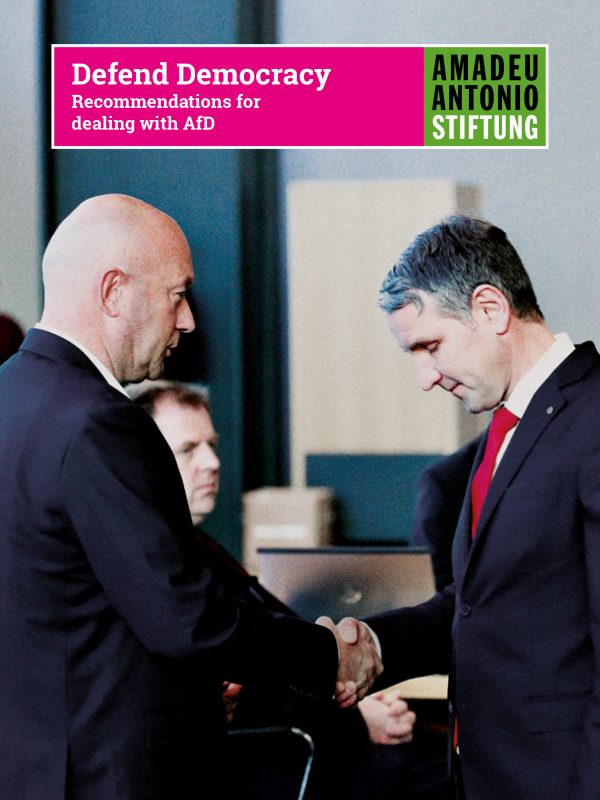Recommendations for dealing with AfD (2021)
The open, pluralistic society is no longer a matter of course. With the AfD, a radical right-wing party has established itself in all German state parliaments and in the Bundestag that questions and attacks our basic democratic rights. The party has a nationwide catalyst function for anti-human content, normalizes it and legitimizes violence to enforce these ideas. Despite the observation of some parts and several state associations as suspected cases by the Office for the Protection of the Constitution, the AfD remains dangerous, especially in places where it has local roots and provides structure and resources for the extreme right. In our updated and expanded edition of this guide, we focus on the following topics in four new chapters: AfD economic and social policy, AfD nature conservation policy, the AfD’s party-affiliated foundation, and take a look at the AfD from the perspective of migrant self-organizations.
At the same time, after years of experience in dealing with the AfD, we look back on a learning process that has been successful in many places and bumpy in others. Representatives of our democracy have often found clear words, there have been important processes of self-understanding in civil society, and networks of solidarity have been formed to counter the party’s hostility. In addition, awareness is growing in all parts of our society of how our own work is linked to our liberal democracy and how enemies of democracy each try to attack this foundation of our plural coexistence. This is precisely the time to make our democracy storm-proof.
With this handout, we want to support all those who are affected by attacks from the AfD and provide information and recommendations for action to those involved in civil society, the media, the arts, parliaments, education and other areas for dealing with the radical right. After all, this is not just about a dispute over opinions, but about defending open society and democratic coexistence.
